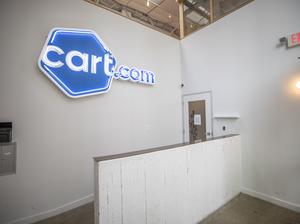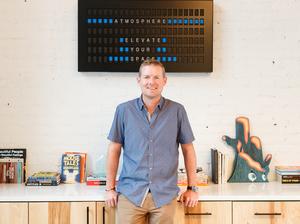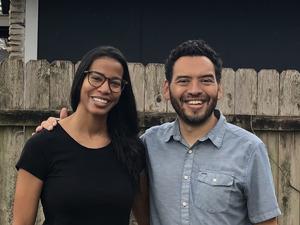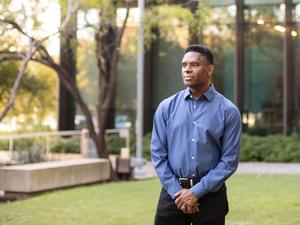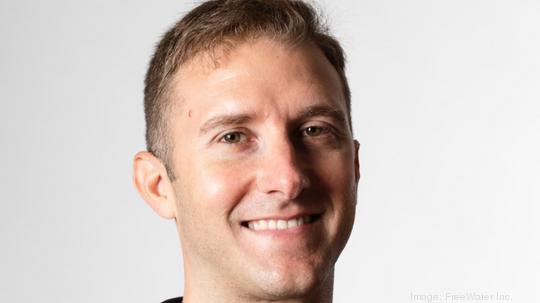
There's no such thing as a free lunch, but Austin-based FreeWater Inc. has built a business model around handing out free water.
Founder and CEO Josh Cliffords has created a small but burgeoning company that charges other businesses to advertise on consumable products. In addition to giving away free water, the company donates to provide clean water to impoverished countries.
The packaging of the water is the ad space, cutting out a U.S. direct mail advertising industry estimated to be worth $7.4 billion in 2022, according to IBISWorld.
“We're disrupting the direct mail industry, or junk mail, which still has one of the highest [returns on investment] in the U.S. ad industry,” Cliffords said. “No matter how much technology you pack in a phone, app or website, it still can't compete with that piece of paper in the right person's hand.”
A consumer will look at the water bottle, currently the only product from FreeWater, at minimum 10 times before tossing it, the CEO said. Advertisers can benefit from a consumer viewing their product numerous times without constantly sending ads through the mail. Plus, the aluminum bottles are refillable, giving more face time with the advertisement and producing less waste.
Businesses can order bottles and give them out directly, or they can use FreeWater’s distribution. Some common ways FreeWater distributes is by hitting busy foot-traffic spots around Austin: bridges across Lady Bird Lake downtown, the University of Texas campus and events such as a recent reproductive health rally at the Texas State Capitol.
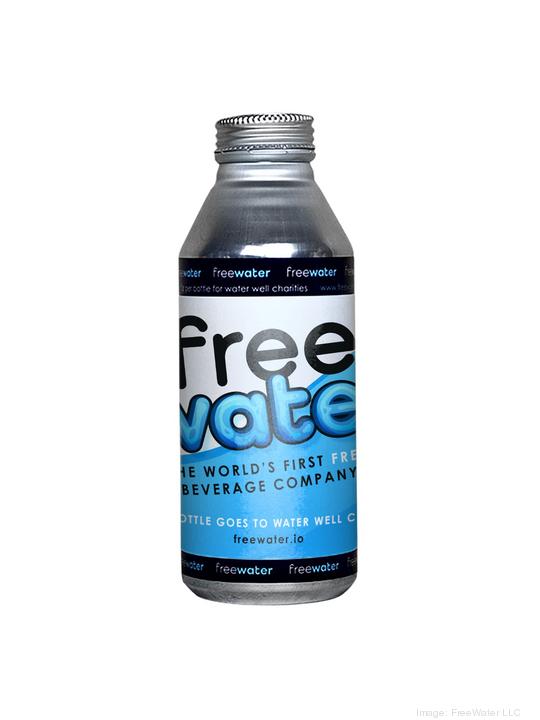
Companies pay about $1,000 for a pack of 500 to 600 aluminum bottles, Cliffords said. Water cartons, a new product type, have a minimum order size of 10,000 units and cost the business about $1 per bottle.
FreeWater has already advertised for Sportswest, Manolis, Juice Consulting, the Animalis Fabula film festival and others. A few orders in the making include TV show "Tacoma FD," AbleGamers, Devexity and two TikTok influencers. A portion of these orders are slated to arrive in the winter and others in the spring.
It is more difficult to find manufacturers of bottles made from sustainable materials, such as aluminum and cardboard, than it is to find those producing plastic. Ball Corp., one of the world’s largest aluminum can suppliers, plans to significantly raise minimum order sizes in March, which could make it tougher for smaller companies to obtain cans. FreeWater, which distributed about 31,500 bottles in 2021, is competing with large carbonated-drink companies who manufacture beer and energy drinks for a limited supply of aluminum.
FreeWater uses a plant in Northern California for water cartons, and a company in Georgia for aluminum. Cliffords admitted that the process is inefficient but hopes in the future to open a manufacturing plant in Austin, cutting costs about 40% per unit.
Even facing those issues, FreeWater is still able to donate 10 cents of every bottle sold to Well Aware, an Austin-based nonprofit that builds water wells in Africa. FreeWater earns an estimated profit of 25 cents per bottle.
FreeWater started off with personal investments from Cliffords and his wife of more than $100,000, spread out between 2020 and the first half of 2021. The company does not have any employees and instead has nine partners working for equity.
Distribution of the bottles began in 2021, and that is when the company started raising outside money. So far, Cliffords has raised roughly $250,000, about half of which came through followers on social media platform TikTok. The company's valuation has reached $7 million, the CEO said.
National and international businesses have begun seeking out FreeWater's ad space. Companies and organizations inquiring about the process include Google Fiber, Air France, the Dallas Cowboys and Hewlett Packard, plus the Department of Defense, Clifford said.
“I believe we are the next Google,” he said. “A lot of people on social media call us the Bitcoin of water. It’s magical stuff that’s happening.”
A major hurdle remains to achieve that kind of growth: distribution. FreeWater has turned down some business because there was no efficient method to get the bottles in consumers' hands.
FreeWater expects to distribute at least 250,000 water bottles this year, although there is also a stretch goal of 1 million or more. But 20,000 water bottles weigh 22,000 pounds and need proper transportation. The company just received its first truck, which can distribute 3,500 bottles at a time, and has pre-ordered 25 Tesla Cybertrucks.
The next product from FreeWater will be stainless steel bottles, which will have permanent ads on them. In the first half of the year, FreeWater will also launch several vending machine prototypes, which will be spread across multiple hotels in Austin.
